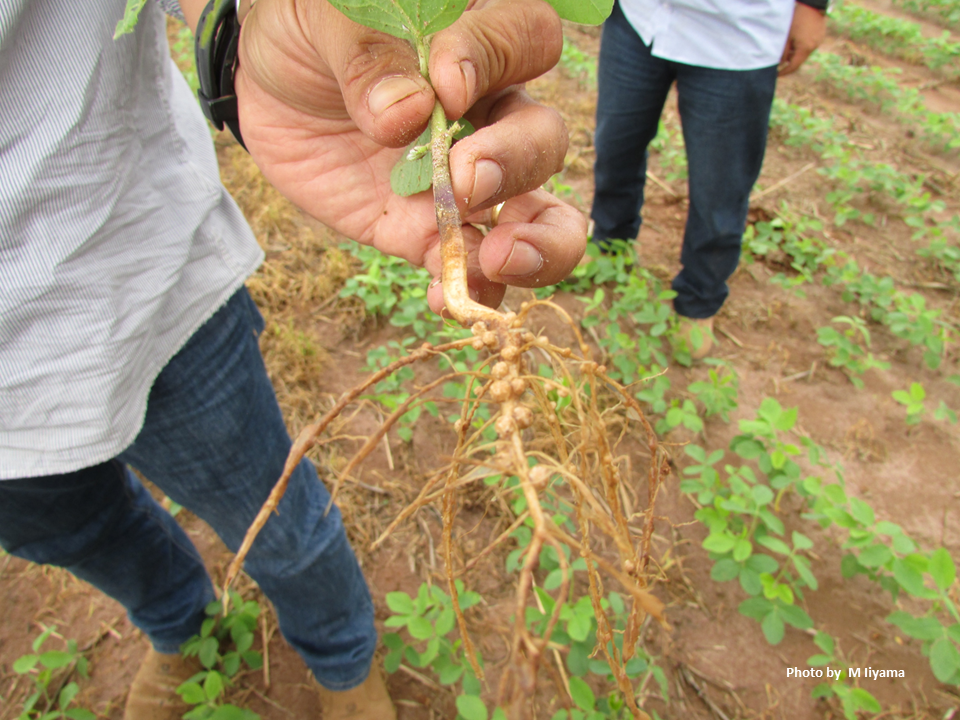Pick Up
1258. World Food Prize 2025: Utilizing Symbiotic Soil Microorganisms in Tropical Agriculture

1258. World Food Prize 2025: Utilizing Symbiotic Soil Microorganisms in Tropical Agriculture
Nitrogen is an essential nutrient for plant growth and production, and in modern agriculture, it is supplied by chemical fertilizers. However, excessive use of chemical nitrogen fertilizers is problematic as it leads to the emission of nitrous oxide, a greenhouse gas, and water pollution. In contrast, biological nitrogen fixation is a process in which naturally occurring microorganisms interact with plants to fix atmospheric nitrogen in the soil, which is then absorbed by the plant's roots.
The 2025 World Food Prize has been announced to be awarded to Dr. Mariangela Hungria, whose outstanding scientific advances in biological nitrogen fixation have contributed greatly to transforming soil health and crop nutrition sustainability in tropical agriculture.
Dr. Hungria believed that using bacteria to provide nitrogen could reduce the environmental impact of agriculture and reduce reliance on expensive imported fertilizers. Through decades of research and development at Brazil's National Soy Center (Embrapa Soja), she isolated bacterial strains and tested their potential to promote plant growth. Existing studies in the United States, Australia, and Europe had shown that a single inoculation of soybeans did not produce the expected yields that were comparable to those achieved with chemical fertilizers. However, Dr. Hungria demonstrated that beneficial bacteria in the soil could be readily utilized by inoculating soybeans every growing season, and that re-inoculation every season ultimately increased yields by 8% compared to traditional chemical fertilizers.
She led the development of over 30 microbial technologies, including beneficial bacteria applied to seeds and soil, for major crops such as soybean, bean, corn, wheat, rice, and pasture.
She took a “basics to applications” approach to soil microbiology, from studying bacterial evolution to developing microbial inoculants for farmers. She participated in field days, led extension trainings, and wrote technical brochures and the first Portuguese manual on tropical soil microbiology. These helped manufacturers adopt methodologies and protocols for inoculant production, and microbial inoculants quickly became popular among soybean growers. Today, the technology is used annually on 85% of Brazil’s soybean area, more than 30 million hectares, the highest inoculant adoption rate in the world.
Her research has contributed greatly to Brazil becoming a world leader in the commercial use of biological inoculants. The technologies she and her research group developed have been adopted around the world, including on more than 40 million hectares of farmland in Brazil. These innovations have saved Brazilian farmers approximately $25 billion a year in input costs, reduced emissions by 230 million tons of CO2 equivalent, and increased yields that would not have been possible with synthetic nitrogen fertilizer alone. This and other scientific advances have propelled Brazil to become one of the world's leading soybean producers and exporters, and laid the foundation for the country's agricultural and economic growth over the past few decades.
Contributor: IIYAMA Miyuki, Information Program
